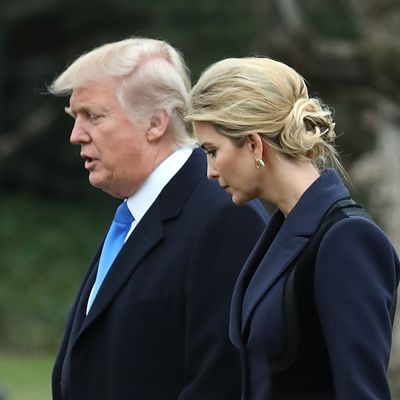
Despite the moving moment during Tuesday’s speech when President Trump acknowledged Carryn Owens, the widow of Chief Petty Officer William “Ryan” Owens, debate continues over the operation in which the Navy SEAL lost his life. New reports on Wednesday shed light on how the Yemen raid was authorized just five days into the Trump administration, and the intelligence collected.
As previously reported, President Trump approved the raid — a major escalation of U.S. counterterrorism operations in Yemen that was planned by the Obama administration — during a dinner with his top advisers on January 25. The Washington Post reported that according to a senior administration official, Trump was first briefed on the operation during his morning intelligence briefing, and he briefly stopped by a discussion of the raid happening in Defense Secretary James Mattis’s office.
On January 26, sub-Cabinet officials reviewed the operation during a meeting chaired by K.T. McFarland, Trump’s deputy national security adviser. They went over the increased risk to U.S. forces, but several sources told the Post that the discussion only lasted about 25 minutes because there were other topics to cover and Trump had already approved it. The senior administration official said it was more like 40 minutes, but former officials say that’s still inadequate.
“In previous operations like this, we would sit around the table for two hours and scrub everything. The intelligence agencies would put down maps. We’d have congressional folks talk about reaching out to Congress. The State Department would do its political assessment,” said Colin Kahl, who formerly oversaw Middle East issues at the Pentagon and was national security adviser to Vice-President Joe Biden. “You can’t cover the complexity of a topic like that in 23 minutes.”
On Monday, a day before President Trump recognized Owens during his address to Congress, he distanced himself from the decision to authorize the raid, emphasizing in a Fox News interview that others planned the mission.
“This was a mission that was started before I got here. This was something that was, you know, just they wanted to do. They came to see me. They explained what they wanted to do, the generals, who are very respected,” he said. “My generals are the most respected that we’ve had in many decades I believe. And they lost Ryan.”
Trump was facing new scrutiny after Ryan Owens’s father publicly questioned the motivation for the operation over the weekend, and called for an investigation. U.S. officials had also told NBC News that the raid produced no significant intelligence.
Trump rebutted this during Tuesday’s speech, saying:
I just spoke to General Mattis, who reconfirmed that, and I quote, “Ryan was a part of a highly successful raid that generated large amounts of vital intelligence that will lead to many more victories in the future against our enemies.”
The AP reported that a large amount of information was found on the laptops, hard drives, and cell phones scooped up during the raid:
The U.S. official said a list describing the broad range of intelligence gains from the raid fills more than three pages. It includes information on al-Qaida in the Arabian Peninsula’s training techniques and targeting priorities, said the official, who wasn’t able to discuss details of the classified military operation publicly and spoke on condition of anonymity. Such intelligence gives insight into the group’s attack planning.
What appears to be in dispute is the value of that intelligence. On Wednesday night, NBC News reported that ten U.S. officials across the government who have been briefed on the mission say there have yet to be any truly significant findings. One senior Pentagon official said it was mostly information they already knew, though another U.S. official said they did glean contact information that may link terrorists in Yemen to Europe and the U.S.
The New York Times reported on Wednesday that the materials, which are still being analyzed, may further U.S. officials’ understanding of Al Qaeda’s tactics and new nonmetallic bombs the group is developing. However, there’s nothing about specific plots, and the information has not led to any new strikes.
Initial descriptions from the Trump team suggested far more dramatic findings. White House Press Secretary Sean Spicer said the operation “gathered an unbelievable amount of intelligence that will prevent the potential deaths or attacks on American soil.”






























